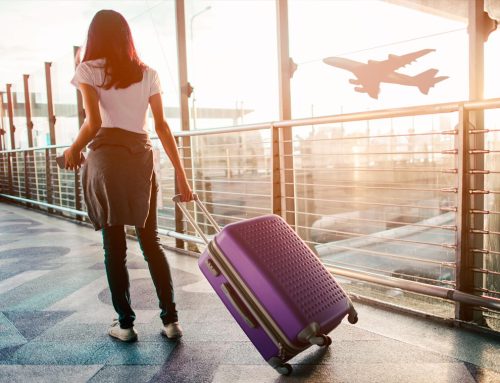Not so fast – why the use of vaccine passports is still a ways away
By Emily Kim
Now that more and more Americans are getting vaccinated, the big question is what this means for the future. Will we be able to return to (at least some) form of normalcy? With summer approaching, will we be able to travel? Attend events? And this is where the concept of vaccine passports enters the conversation.
A vaccine passport, in theory, is a digital record of one’s Covid vaccination status, which a person presents in order to engage in certain activities. Proponents of vaccine passports emphasize that their implementation could restimulate the travel industry (the aviation industry suffered a $370 billion loss in 2020), as well as reopen employment opportunities for those taken out of work by the pandemic.
In response to privacy concerns, proponents use the IBM Digital Health Pass as a point of comparison. This digital “wallet” of health information uses blockchain technology – simply described as storing information in multiple decentralized “nodes” – to ensure the security of one’s records and make any tampering of the data difficult. Vaccine passports, like the IBM Digital Health Pass, would also utilize blockchain technology. Your vaccine provider already holds your records, as they were the ones who issued the vaccine, but you would access them through a digital wallet. Then, the third party would scan a personal QR code to see whether or not you meet the criteria to participate in an event. They would not have access to your records directly. According to a ZDNet article, “an app based on the Digital Health Pass [would] give over no more information than the user allows.”
So while technology companies are actively finding ways to solve the privacy issue, experts are hesitant for a number of other reasons as well, as outlined by this BBC article. First and foremost, We still don’t know how long immunity lasts after the second dose of the vaccine. How, then, can we determine the passport’s expiration date? Furthermore, there are currently three major Covid-19 variants circulating the US – variants from the UK, South Africa, and Brazil. There is still uncertainty about the effectiveness of the vaccine against each of these variants. If someone gets the vaccine and then travels to a country where the dominant strain is different, they must be able to trust that the vaccine will protect them adequately. Supporters of vaccine passports often compare the concept to the mandatory yellow fever vaccine, but Professor Christopher Dye, epidemiologist at the University of Oxford, explains that in the case of the yellow fever vaccine, “there is only one vaccine available, it’s highly effective, and confers lifetime protection.” Therefore, with there being lingering questions over the Covid vaccine’s (both Pfizer and Moderna) effectiveness against the variants, clearly the comparison argument is faulty.
It is also important to note that not everyone is advised to get vaccinated. According to the CDC, those who had a severe allergic reaction to the first dose or those who are allergic to polyethylene glycerol (PEG) or polysorbate are not recommended to get the vaccine. If vaccine passports are required to attend certain events, go certain places, or carry out daily activities, they would discriminate against people who shouldn’t get vaccinated for valid health reasons.
Vaccine accessibility is another issue the US is currently facing, especially within black and brown communities. According to early data collected by the Kaiser Family Foundation’s Racial Equity and Health Policy Program, in Mississippi, while black people account for 38% of Covid cases and 42% of deaths in the state, they only account for 15% of the vaccinated population. Similarly, in Nebraska, Hispanics account for 23% of Covid cases and 13% of deaths in the state, but only 4% of the vaccinated population. Pushing forward with vaccine passports before everyone has had the opportunity to get vaccinated could impose additional discrimination onto people groups already disproportionately affected by the coronavirus.
Thus, though vaccine passports may seem like a smart way to return some pre-pandemic normalcy, we still have a long way to go and many questions to answer. Perhaps we will use vaccine passports in the future. But for now and the months to come, we should focus on educating ourselves, finding answers to these questions, and then coming to a careful, well-informed decision. We will make it out of this pandemic. But to do so, we need a sustainable, not rapid, solution.






